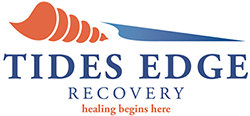The opioid dependence crisis is all over the news lately, and it’s clear that these painkillers and other substances are ruining lives. If you or a loved one have used opioids and is now struggling with opioid dependence, you may be wondering what’s making it so hard to get off of the drugs your doctor prescribed. Most people who struggle with opioid addiction never intended to use drugs illegally. No matter how tough of a time you’re having getting off of opioids, recovery is possible. At Tides Edge Detox, we provide safe, medically assisted detox programs to help you get your recovery started on the right foot.
Tides Edge Detox provides opioid addiction treatment in Florida, so learn more about how we can help by calling 866.723.3127.
Your Brain’s Natural Opioids
Ordinarily, the brain produces natural opioids as a response to pain. These opioids are not very strong and do not provide a high. They provide temporary relief from the body’s natural pain response to an injury or illness. When the brain works properly, opioids release pain or distress and contribute to an overall sense of well-being.
In some cases, the brain may produce too many opioids. This can happen when someone has an infection or is injured. The excess opioids can cause confusion, drowsiness, and constipation.
In other cases, the brain may not produce enough opioids. This can happen when someone has chronic pain or is going through withdrawal from opioids. Without enough opioids, pain can become unbearable.
Opioid Dependence and Brain Chemistry
When the medical community first began to use opioid pain medications, it seemed like a miracle answer for patients dealing with both acute and chronic pain. However, researchers and drug makers did not thoroughly research these drugs in the areas of addiction and dependence. People who took opioid pain relievers that their doctor prescribed found that they were going through their pain medication quickly, often resorting to illegal means to get more medication.
As outside opioids enter the body, brain chemistry begins to change. The brain no longer produces natural opioids. When the body runs out of outside opioids, withdrawal symptoms set in. The brain is being hit in two ways. First, it’s not producing any of its natural opioids. Secondly, it’s not getting the feel-good hit from outside opioids.
This combination can make it impossible to overcome opioid dependence without help from a professional opioid detox center. Thus, most people need help to get off opioids for good, as the withdrawal symptoms can become unbearable at best (and dangerous at worst).
Getting Help Starts with Detox
We know that it can be hard to ask for help. We’re glad that you’re researching to learn more about opioid dependence. If you think that you or a loved one is struggling with opioid dependence, learning more about treatment options is the first step to getting well. At Tides Edge Detox, we provide medication-assisted treatment to help you wean off opioids as you safely get the drugs out of your body. You’ll work with medical personnel throughout your detox, helping you to stay as comfortable as possible. We know that the thought of detox can be scary, but you don’t have to go through this alone.
As you detox from opioids, we offer several different therapies to help you come out on the other side, such as:
Individual Counseling
Individual counseling is a process where a person meets with a trained counselor to discuss their addiction and work on developing coping and recovery skills. The goal of individual counseling is to help the person understand their addiction, what causes it, and how to overcome it. Counselors use different techniques depending on the needs of the individual, but all aim to help the person develop a stronger sense of self-awareness and control over their addiction.
Group Therapy Programs
Group therapy programs are an important part of addiction treatment. They provide a supportive environment where people can share their experiences and learn from each other. Group therapy can be an effective way to address underlying issues that contribute to addiction and learn new coping and problem-solving skills.
Cognitive-Behavioral Therapy
Cognitive behavioral therapy (CBT) is a type of psychotherapy that helps people change their thinking and behavior. CBT is based on the idea that our thoughts, feelings, and behaviors are all connected. So, if we want to change our behavior, we need to change our thoughts and feelings.
Yoga Therapy as well as Other Holistic Treatments
This can help to ease withdrawal symptoms, reduce cravings, and improve mental and physical health. Yoga therapy can be used as a standalone treatment or as part of a wider rehabilitation program.
These therapies can initiate individuals into the approaches used when they complete detox and enter into an addiction treatment program like those offered at our partner facility, Beaches Recovery.
Call Tide’s Edge Detox for Help with Opioid Dependence
We know that it’s not easy to ask for help. If you’re struggling with opioid dependence, you don’t have to spend the rest of your life in pain or wondering how you’re going to get your hands on more medication. Freedom from addiction is possible. A medically assisted detox is the first step toward getting your life back. We offer Suboxone and Methadone as medications to help clients address their cravings and learn to manage their withdrawal symptoms. However, treatment for opioid dependence is just one of the substance abuse detox programs we offer. Some others include:
- Alcohol detox
- Bath salts detox
- Benzo detox
- Cocaine detox
- Fentanyl detox
- Heroin detox
- Methamphetamine detox
- Prescription drug detox
If you’re ready to live a life free of addiction, we want to help. Contact Tides Edge Detox at 866.723.3127 to talk with one of our admissions counselors to learn more about our detox program. Recovery is possible, and we can help.









